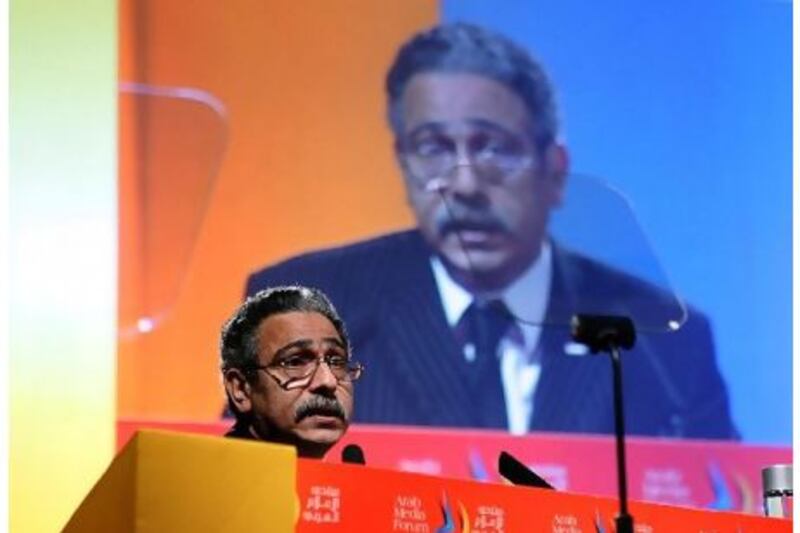DUBAI // Mainstream media in parts of the Arab world faces radical change after years of government-sanctioned censorship, according to Egypt's minister of culture.
Emad Abu Ghazi, speaking on the opening day of the Arab Media Forum in Dubai, said media in the region had not witnessed the growth seen in other parts of the world. He attributed this partly to "repressive laws" and government control of media channels.
"Some governments had brought repressive laws and codes against the media," Mr Abu Ghazi said. "With the totalitarian regimes, Arab countries have witnessed years where media were under control of censorship."
The Arab media may have missed out on the development seen in the West in the past century, but was now ready for transformation, he said.
"The last century has witnessed a backward [step for Arab] media, while the whole world was going through media revolution," Mr Abu Ghazi said.
He said the media was "a very important tool in the struggle of the people".
Arab states rank low in the annual Press Freedom Index compiled by the Paris-based non-governmental organisation Reporters Without Borders.
Egypt placed at number 127 in 2010, behind countries such as Zimbabwe, Tajikistan and Sierra Leone. Tunisia ranked 164th on the list, which was compiled before the uprisings in both countries.
"I believe the Arab media cannot resist some changes," Mr Abu Ghazi said. "During the past months in the region we have witnessed such historical events, which have highlighted the role of media, especially new media," he said.
"The street cannot be isolated from the media … There was an independent media that came forth through the internet. It cannot be controlled by anyone."
Sheikh Mohammad bin Rashid, Vice President of the UAE and Ruler of Dubai, attended the official opening of the forum, where Mr Abu Ghazi also spoke of "deep-rooted" associations between Egypt and the UAE.
Mr Abu Ghazi answered questions from the audience. One questioner asked how the new Egyptian government planned to bring to justice those connected with the regime of the deposed president Hosni Mubarak.
"If there was a rotten fish, it starts with the head first," Mr Abu Ghazi replied. "I can bring to court the people who were responsible for spreading the corruption."
However, "there are only investigations right now, not trials", he said.
Security and the economy form the two "major challenges" for Egypt as it rebuilds itself, he said.
"The unity of the Egypt[ian] people... is the guarantee of the success of the revolution," he said. "I am very optimistic and I believe in hope. If I lose optimism, I cannot live."






